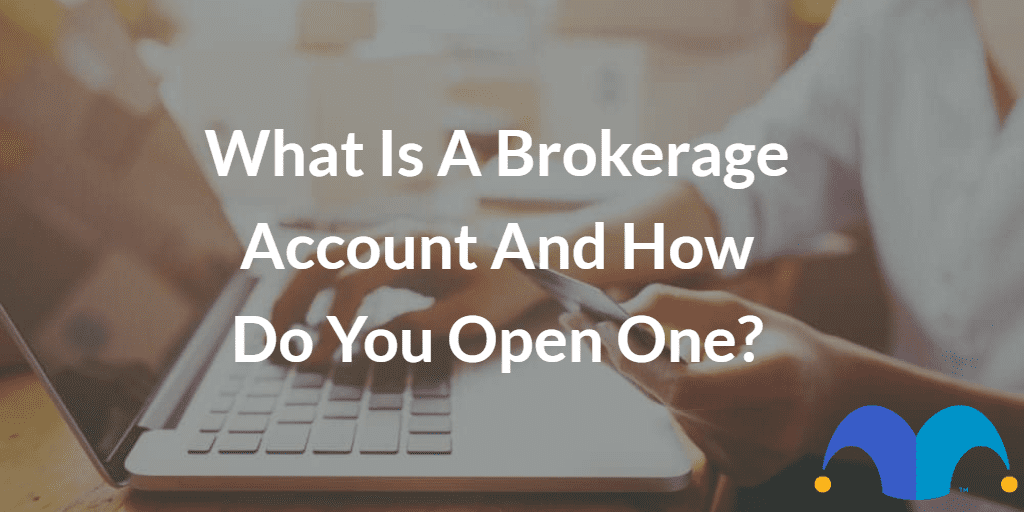Investing is sometimes made out to be more complex than it is. Understanding what a brokerage is and opening up an account can seem confusing, but it’s your first step to becoming a proper investor.
So to help make your life easier, this article will give you a complete explanation of these accounts and walk you through how to open one. Read on to find out all you need to know.
What is a brokerage?
A brokerage is just a company that acts as a middleman to facilitate transactions. It is the entity that helps to arrange a deal, and it receives a commission or fee for acting as a trusted third party.
When investing, it would be a nightmare if you had to contact every company directly each time you wanted to invest and buy shares. So, a stock brokerage helps to streamline this process.
What’s great is that as technology has advanced, so has the capability of brokerages. The internet means you can buy stocks through your broker with the click of a button!
How do brokerage accounts work?
Brokerage accounts allow you to hold your investments and also provide a platform to buy or sell shares (and sometimes other assets).
You’ll sometimes see them go by other names, such as ‘share dealing accounts’ or ‘investing platforms’. They hold your investments and money in a secure space, but you own everything in the account.
You don’t have to use just one account either. You can keep a few different accounts to see which you like best. There are usually no fees to open an account but sometimes there will be a minimum deposit.
What are the different types of brokerage accounts?
Now, this is where the fun starts. Technology has been a real game-changer in the world of investing, so you now have loads of different options for ways to invest. The most popular types of brokerage accounts for modern investors are:
Online accounts
Online accounts allow you to have a personal portal that you access through the Internet. You can buy or sell investments here and manage your portfolio. This can give you the most choice and flexibility.
Robo-advisors
Robo accounts have really taken off in the last few years. A robo-advisor can simplify the investing process by managing everything for you. Using these accounts does mean limited investment options, but they’re dead easy to set up and use.
Managed accounts
With some brokerage accounts, you can still do your dealings by phone if you prefer that human element. But be warned, most platforms offering this service will charge a high fee for the pleasure of a quick chat on the phone.
Is a brokerage account better than a retirement account?
With a brokerage account, it’s often best to think of it as part of your overall finances but somewhat separate from your retirement. When paying into a workplace pension or SIPP (self-invested personal pension), you can’t touch this money until you retire.
A brokerage account allows you easy access to your funds, but a retirement account means locking away your money for many years.
It’s also worth considering the tax differences:
- Brokerage account – you might be subject to dividend or capital gains tax unless you use a stocks and shares ISA to hold your investments.
- Retirement account – money put into your pension gets tax relief and grows without being subject to tax. But once you start withdrawing funds, it’s treated as part of your income and therefore taxable.
How do you open a brokerage account?
Doing this used to be a hassle with loads of paperwork. Nowadays, you can get your account set up within minutes in most cases.
Choose a broker
Consider the kind of investment account you want and the fees associated with it. To help you choose your broker, we’ve compiled a list of top-rated share dealing accounts.
Gather your personal information
Brokerages often just need some basic information from you to open your account. If you’re setting up a stocks and shares ISA account, you may need your NI number.
Start investing
Once your account is set up, you can start investing.
If you need a refresher on some investing basics, you should check out our complete guide to online share dealing. This will help to polish your understanding of the basic terms and lingo.
Becoming an investor is an exciting process and we’ve got loads of resources here at The Motley Fool to help you on your journey. But keep in mind that the value of investments can go up as well as down, and you may get out less than you put in.
Please note that tax treatment depends on your individual circumstances and may be subject to change in the future. The content in this article is provided for information purposes only. It is not intended to be, nor does it constitute, any form of tax advice. Readers are responsible for carrying out their own due diligence and for obtaining professional advice before making any investment decisions.
